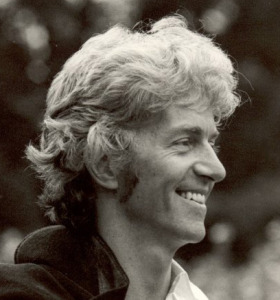2002-2003 Lecture Series

Derek Parfit
Member of the Faculty of Philosophy
Oxford University
Lecture One: Kant’s Formula of Ends-in-Themselves
Monday, November 4, 2002
4:10 p.m. – 6:30 p.m., Toll Room, Alumni House
With commentary by Allen W. Wood
Lecture Two: Kant’s Formula of Universal Law
Tuesday, November 5, 2002
4:10 p.m. – 6:30 p.m., Toll Room, Alumni House
With commentary by Susan Wolf
Lecture Three: Contractualism
Wednesday, November 6, 2002
4:10 p.m. – 6:30 p.m., Toll Room, Alumni House
With commentary by Thomas Scanlon
Seminar and Discussion
Thursday, November 7, 2002
4:10 p.m. – 6:30 p.m., Toll Room, Alumni House
With commentary by Allen W. Wood, Susan Wolf, and Thomas Scanlon.
The lectures and the seminar are free and open to the public.
Download and Listen
Contact us at gradlectures.berkeley.edu to request an audio file of this lecture.
About Derek Parfit
Derek Parfit has made major contributions to our understanding of personal identity, philosophy of the mind, and ethics. He is thought to be one of the most important moral philosophers of the past century. His most recognized book is Reasons and Persons (1984), in which he challenges some of our most profound beliefs about morality, rationality, and personal identity.
Born in 1942, Parfit attended Oxford University and received his B.A. in 1964. He was awarded a Harkness Fellowship from Columbia University in 1965. Since 1967, Parfit has been a Fellow, and more recently a Senior Research Fellow, of All Souls College, Oxford. He has also served as a visiting professor at Harvard, Columbia, and the University of Colorado. Presently, Parfit regularly teaches at New York University, Harvard University, and All Souls College, Oxford. Parfit is a Fellow of several learned societies including the British Academy and the American Academy of Arts and Sciences.
Parfit has published many academic articles including: “Personal Identity” (1971); “Overpopulation and the Quality of Life” (1986); “The Unimportance of Identity” (1995); and “Equality and Priority” (1997). He has several books in progress with the working titles: “Rediscovering Reasons;” “The Metaphysics of the Self;” and “On What Matters.”
About the Commentators
Allen W. Wood
Ward W. and Priscilla B. Woods Professor, Department of Philosophy
Stanford University
Allen W. Wood is a leading thinker regarding issues of ethics, social and political philosophy, and the philosophy of religion. His research and interests center on the history of modern philosophy (especially German philosophy in the eighteenth and nineteenth centuries).
Wood’s books include: Kant’s Moral Religion (1970), Kant’s Rational Theology (1978), Hegel’s Ethical Thought (1990), and Kant’s Ethical Thought (1999). He has also edited and translated many of the numerous writings of Immanuel Kant.
Wood received his B. A. in Literature and Philosophy in 1964 from Reed College and his M. A. in Philosophy in 1966 and his Ph. D. in Philosophy in 1968 from Yale University. Prior to moving to Stanford, he held professorships in Philosophy at Cornell University, the University of Michigan, the University of California at San Diego, and Yale University. Wood has taught at Stanford University since 1999.
Susan Wolf
Edna J. Koury Distinguished Professor of Philosophy, Department of Philosophy
The University of North Carolina at Chapel Hill
Susan Wolf is a notable scholar in the areas of moral theory and the philosophy of the mind. Her views are considered original, despite the fact that the theories she surveys are familiar. Wolf’s current research focuses on the relations among happiness, morality, and meaningfulness in life.
Wolf is the author of Freedom Within Reason (1990), a book on free will and moral responsibility. She has written numerous publications on ethics and the philosophy of mind, including: “Morality and Partiality,” “Two Levels of Pluralism,” “Self-Interest and Interest in Selves,” and “Asymmetrical Freedom.”
Wolf received her B.A. in Mathematics and Philosophy from Yale, and her Ph.D. in Philosophy from Princeton. She taught at Harvard, the University of Maryland, and Johns Hopkins University before taking her current position at the University of North Carolina. She has held visiting appointments at the Australian National University and at the University of Utrecht in the Netherlands, and has held fellowships from the American Council of Learned Societies, the American Association of University Women, and the Guggenheim Foundation.
Thomas Scanlon
Alford Professor of Natural Religion, Moral Philosophy, and Civil Polity, Department of Philosophy
Harvard University
Thomas Scanlon is an important figure in the field of moral and political philosophy. He has published works on freedom of expression, the nature of rights, conceptions of welfare, and theories of justice, as well as on foundational questions in moral theory. And his courses have dealt with issues of equality and recent ethical theory.
Scanlon is best known for his book, What We Owe to Each Other, in which he supports his contractualistic views. It was published by Harvard University Press in 1998. Other recent publications include “The Difficulty of Tolerance” (1996) and “Intention and Permissibility I” (2000).
Thomas Scanlon received his B.A. from Princeton in 1962 and his Ph.D. from Harvard in 1968. In between, he studied for a year at Oxford as a Fulbright Fellow. He taught at Princeton from 1966 to 1984 and has taught at Harvard since then. Scanlon was awarded a MacArthur Fellowship in 1993.
